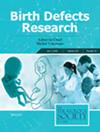The Health of Pregnant Women and Their Unborn Children– Neglected in Vaccine Development
Abstract
Background
Randomized Controlled Trials of vaccines given in pregnancy aimed at benefitting the unborn child began in 2015. Their use for licensing purposes now appears established. These trials generate data on possible benefits and harms to infants but also on maternal health impacts. The International Council on Regulations for Pharmaceutical Use in Humans has realized that current safety regulations are not adequate for clinical trials in the second half of pregnancy. They are now drawing up improved guidelines for the conduct of these trials.
Aims
To focus attention on maternal and fetal health that his new willingness to run trials in pregnancy brings into the frame.
Materials and Methods
We reviewed all recent maternal vaccine trials and their outcomes, along with potential concerns.
Results
Analysis of data from recent trials of vaccines given in pregnancy suggests that they may be associated with adverse events during the pregnancy that affect both the mother and the fetus.
Discussion
The aim of vaccine trials in pregnancy currently centres on measuring the efficacy of prevention of infectious disease, and perinatal outcome. Study of the impact of maternal vaccines on pregnancy physiology has been neglected. New, rapidly developing areas, such as epigenomics, need to be considered. It is a good time for the wider field to have an input on what might be included in the guidelines, and whether other measures are needed.
Conclusion
Insufficient attention has been given to monitoring the health of pregnant women and of their fetus during vaccine trials. The need for new guidelines offers an opportunity to require more stringent safety monitoring during pregnancy which will benefit women and their unborn children.

 求助内容:
求助内容: 应助结果提醒方式:
应助结果提醒方式:


